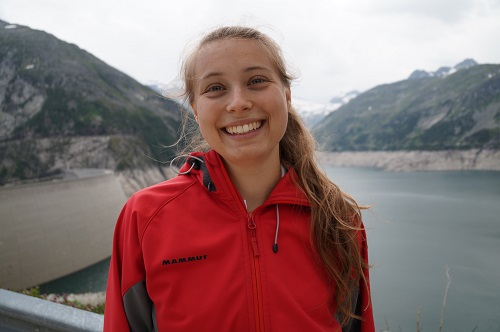Research interests
- Gut microbiome composition of non-model species
- Microplastics
- 16S rRNA gene sequencing
- Shotgun metagenomic sequencing

Scientific projects
Mankind prides itself in shaping the environment it inhabits, yet all too often fails at realizing the environment’s omnipresent impact on mankind. For me, one of the most fascinating unknowns is how and to which extent humans ultimately affect themselves through their – often neglecting – interactions with the environment. This lured me not only study to biology in the first place, but continues to shape my research interests to this day.
As an undergraduate, I became captivated by the gut microbiome and its intrinsic, symbiotic role, not only in aiding digestion, but also in the overall health of its host. For my undergraduate thesis, I investigated how the ingestion of different quantities of toxic plant secondary compounds affects the composition of the gut microbiome in a large mammalian herbivore, the moose (Alces alces). To do so, I applied a state-of-the-art metagenomic shotgun sequencing approach to not only determine taxonomy, but also functional, gene-related information about the gut microbial community. In applying such a sequencing approach, my thesis marked the first description and functional investigation of the role of the gut microbiome in detoxification of a large herbivore.
Growing up in the era of “reduce, reuse, recycle”, I was all too aware of the problem of our ever-increasing consumption of plastic. Despite being numerous decades into the age of plastic, the manifold impacts of these non-biodegradable materials are still being investigated, whilst microplastics are just being identified as a persistent environmental pollutant. For my PhD thesis, I have decided to combine my fascination with the gut microbiome with microplastics and am currently in the process of setting this project in motion.
Publications
Fackelmann G, Gillingham MAF, Schmid J, Heni AC, Wilhelm K, Sommer S (2021) Human encroachment into wildlife gut microbiomes. Communications Biology, 4:800, 1-11.
Fackelmann G, Sommer S (2019) Microplastics and the gut microbiome: How chronically exposed species may suffer from gut dysbiosis. Marine Pollution Bulletin, 143, 193-203.
Conferences & workshops attended
World Microbe Forum - Outstanding Student Poster Award Winner for the poster titled "Human Encroachment into Wildlife Gut Microbiomes" - June 2021
SETAC Europe 2021 - Platform Presentation titled "Impacts of Microplastic Ingestion on Wildlife Gut Microbiomes" - May 2021
Microbiome Data Analysis Workshop organized by UHasselt's Data Science Institute (Prof. Dr. Olivier Thas) & Centre for Environmental Sciences (Dr. Sofie Thijs) - April 2021
MICRO 2020 Fate and Impact of Microplastics: Knowledge and Responsibilities - November 2020
9th Bonn Humboldt Award Winners' Forum "Frontiers in Biogeography, Ecology, Anthropology, and Evolution. Humboldt and the 'Cosmos' revisited in the 21st Century." - Flash Talk & Poster - October 2019
MICRO 2018 Fate and Impact of Microplastics: Knowledge, Actions and Solutions - November 2018
Contact
- Gloria Fackelmann
Institute of Evolutionary Ecology
and Conservation Genomics
University of Ulm
Albert-Einstein-Allee 11
89081 Ulm
Germany
Email: gloria.fackelmann () uni-ulm.de
Gloria @
Twitter
LinkedIn
ResearchGate
